 Government of India
Government of India
Latest Publications
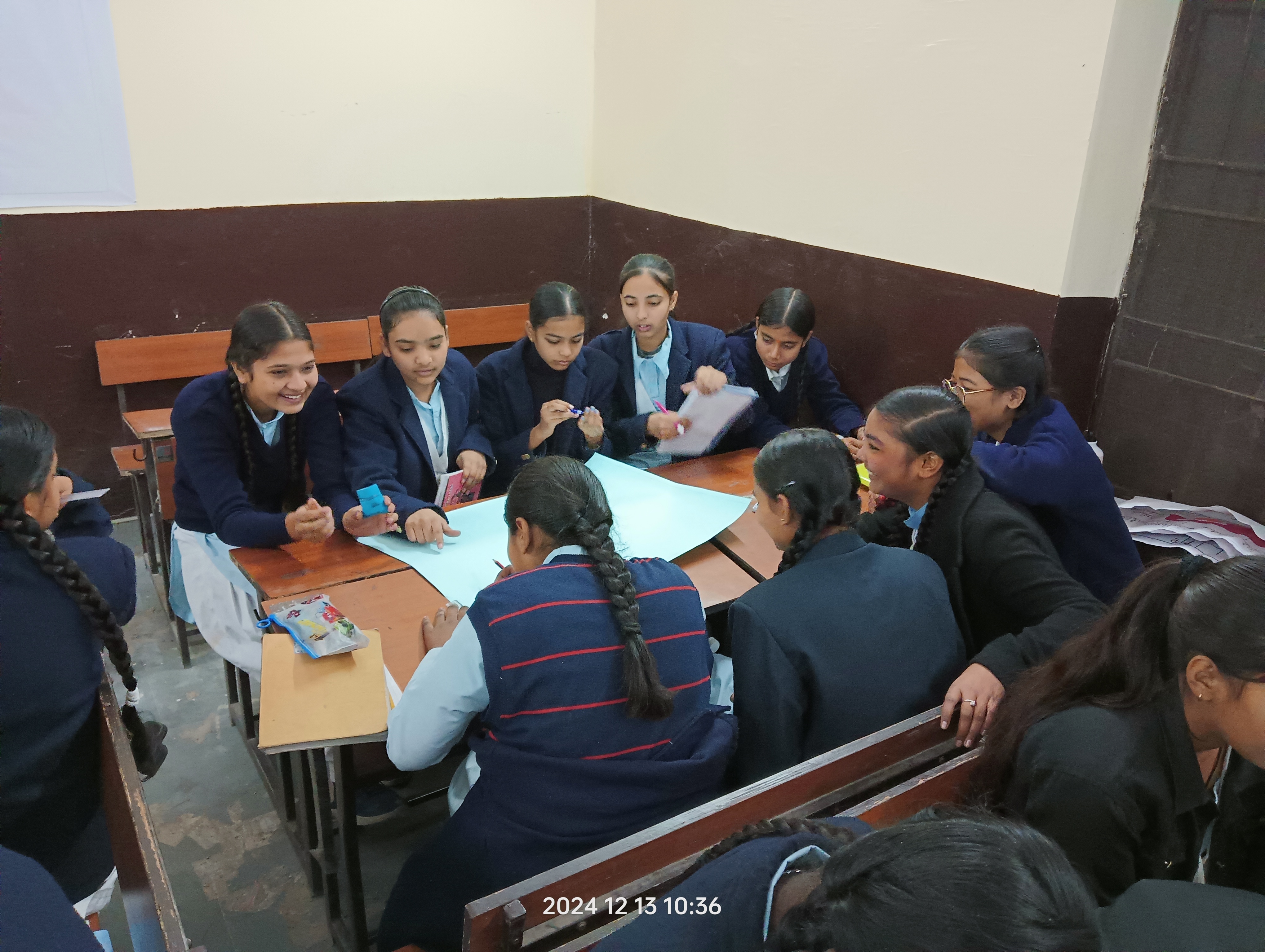
Knowledge tells students what is true. Sensitivity teaches them how to live with that truth
Parakh NCERT
- By Indrani Bhaduri
Learning is shaped as much by how students relate to one another as by what they know. Sensitivity as articulated in PARAKH’s Taxonomy is a domain that foregrounds the interpersonal, ethical, and collaborative dimensions of education. Moving beyond the idea of “being nice,” sensitivity is understood as a set of learnable competencies that enable learners to engage respectfully, navigate disagreement, resolve conflict, and remain open to diverse perspectives. By making space for sensitivity within assessment frameworks, educators can recognise and nurture these behaviours as essential to meaningful learning and life in a diverse, interconnected world.
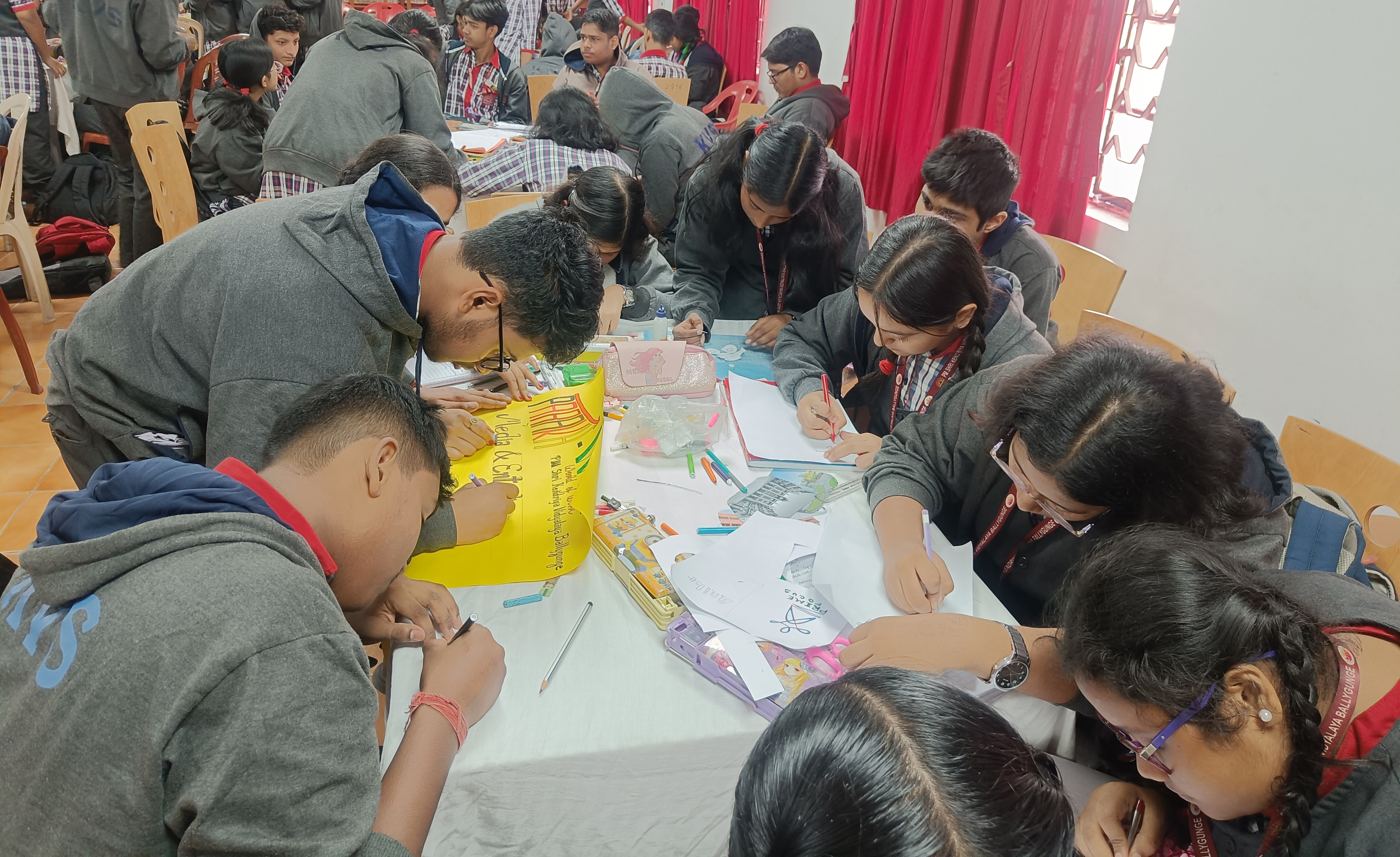
Assessing Creativity Without Killing It
Parakh NCERT
- By Indrani Bhaduri
Creativity has emerged as a critical life skill in the 21st century, essential for navigating an increasingly complex, uncertain, and technology-driven world. Education systems today are expected not only to impart knowledge but also to prepare learners to think independently, solve novel problems, and contribute meaningfully to society. PARAKH’s taxonomy provides a clear and comprehensive framework to understand creativity by identifying its key components: generating innovative ideas, flexibility, fluency, exploration, and combining ideas and concepts. This taxonomy aligns strongly with the vision of the National Education Policy 2020 and marks a fundamental shift towards competency-based assessments.
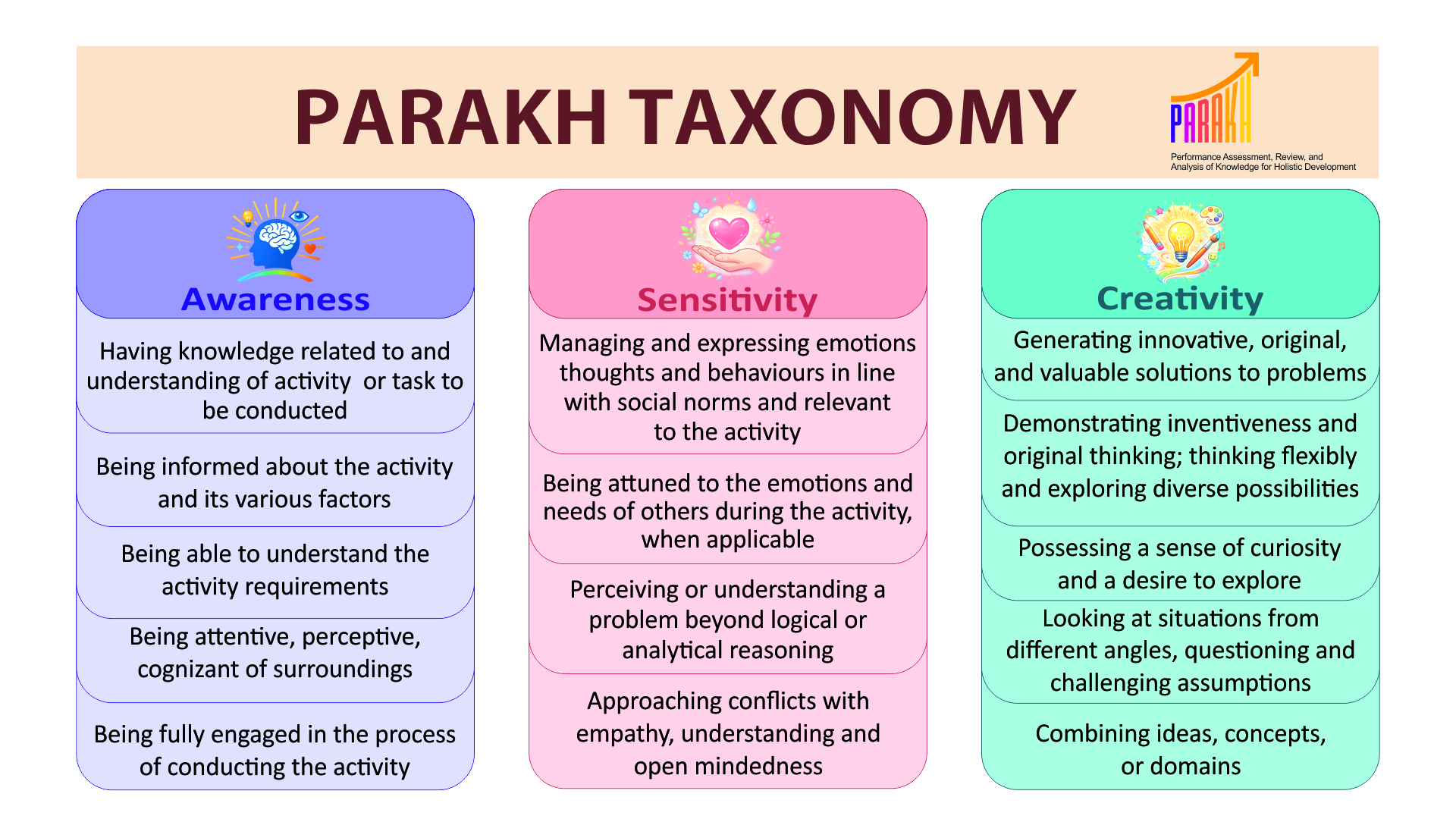
Moving Forward with Purpose: Embedding New Values in Learning and Assessment
Parakh NCERT
- By Indrani Bhaduri
In an era of rapid change and global uncertainty, education must move beyond marks and memorisation to nurture thoughtful, ethical, and creative learners. Aligned with NEP 2020, this blog explores how the PARAKH Taxonomy—grounded in Awareness, Sensitivity, and Creativity—redefines learning and assessment through a holistic lens. By addressing gaps in rote-driven evaluation systems, it emphasises competency-based learning, social-emotional growth, and creative problem-solving. Through the Holistic Progress Card, learners’ growth is valued over perfection, preparing them not just for examinations, but for lifelong learning, collaboration, and meaningful participation in an inclusive, future-ready society.
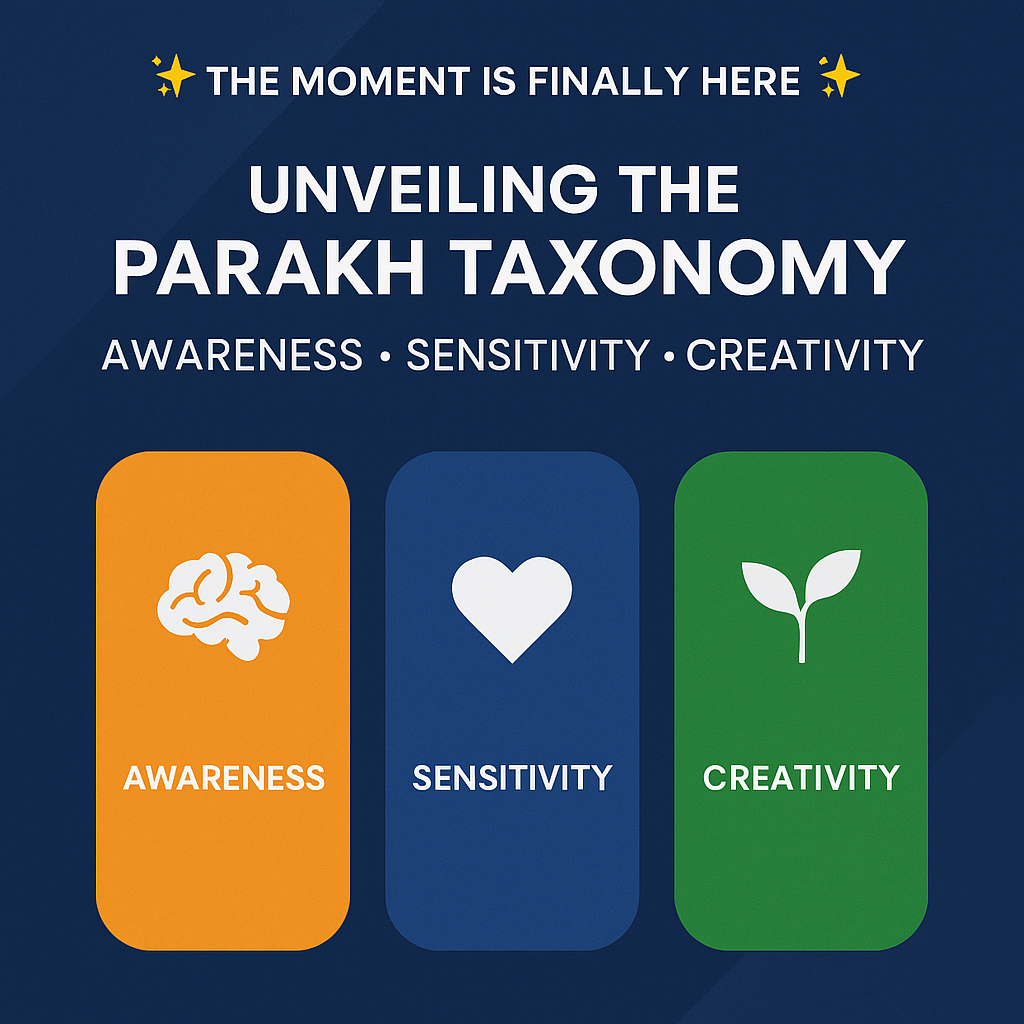
PARAKH Taxonomy
PARAKH NCERT
- By Indrani Bhaduri
The PARAKH Taxonomy introduces a structured framework for competency-based education in India, emphasizing three core domains: Awareness, Sensitivity, and Creativity. Designed to align policy with classroom practice, it addresses the limitations of traditional assessments that prioritize rote learning over holistic development. By embedding reflection, empathy, inclusivity, and innovation into evaluation, the taxonomy prepares learners for life beyond examinations. Its contextual relevance to India ensures equity across diverse classrooms while supporting the National Education Policy’s vision for transformative learning. The taxonomy thus marks a critical step toward redefining education as a process of becoming responsible, compassionate, and inventive citizens.
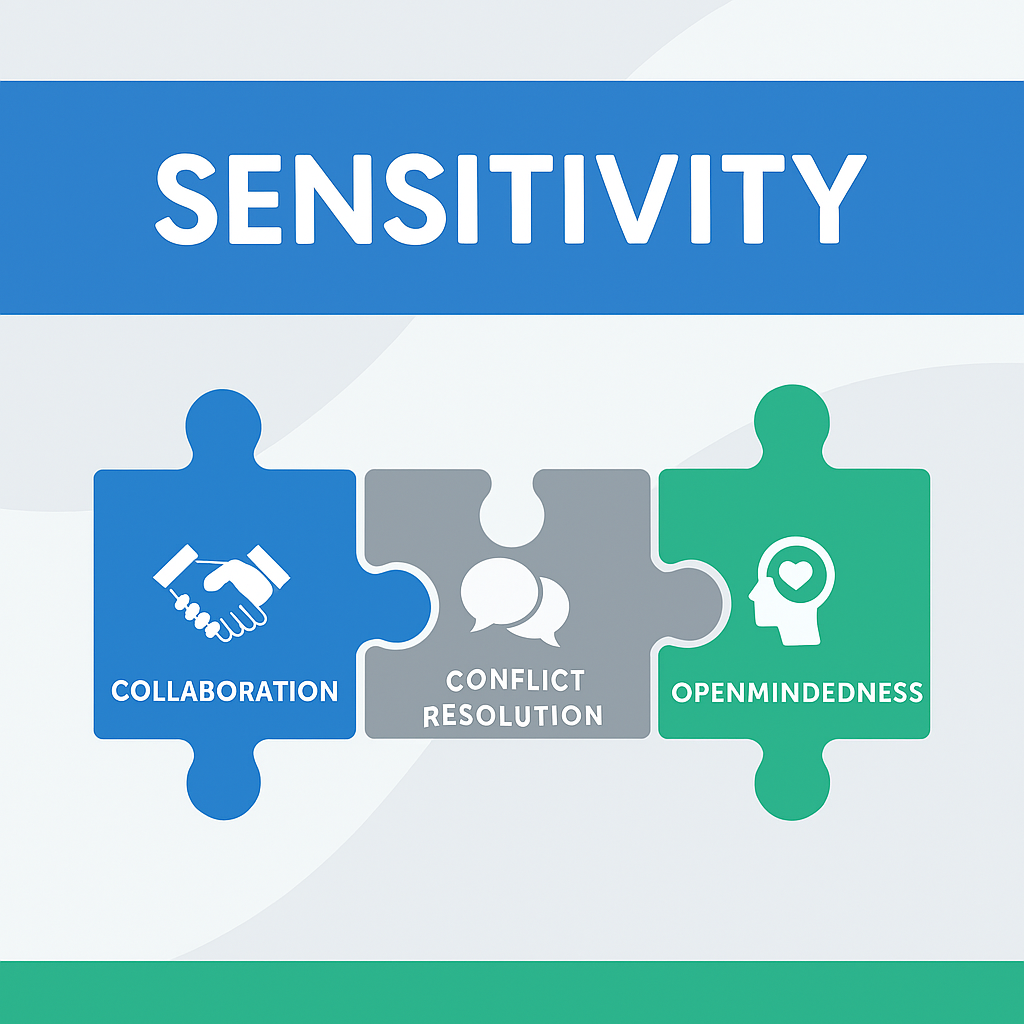
Sensitivity
PARAKH NCERT
- By Indrani Bhaduri
Sensitivity, a core domain of the PARAKH Taxonomy, emphasizes the interpersonal and ethical dimensions of learning. It comprises three sub‑domains: collaboration, conflict resolution, and openmindedness, each vital for preparing learners to engage productively in diverse communities and workplaces. Despite their importance, these competencies are often overlooked in summative assessments, which traditionally prioritize knowledge recall and individual performance. Integrating Sensitivity into assessment through group tasks, scenario‑based items, reflective evidence, and multi‑source evaluation ensures alignment between educational goals and practice. This approach affirms that education must measure not only cognitive achievement but also the capacity to become responsible, empathetic citizens.
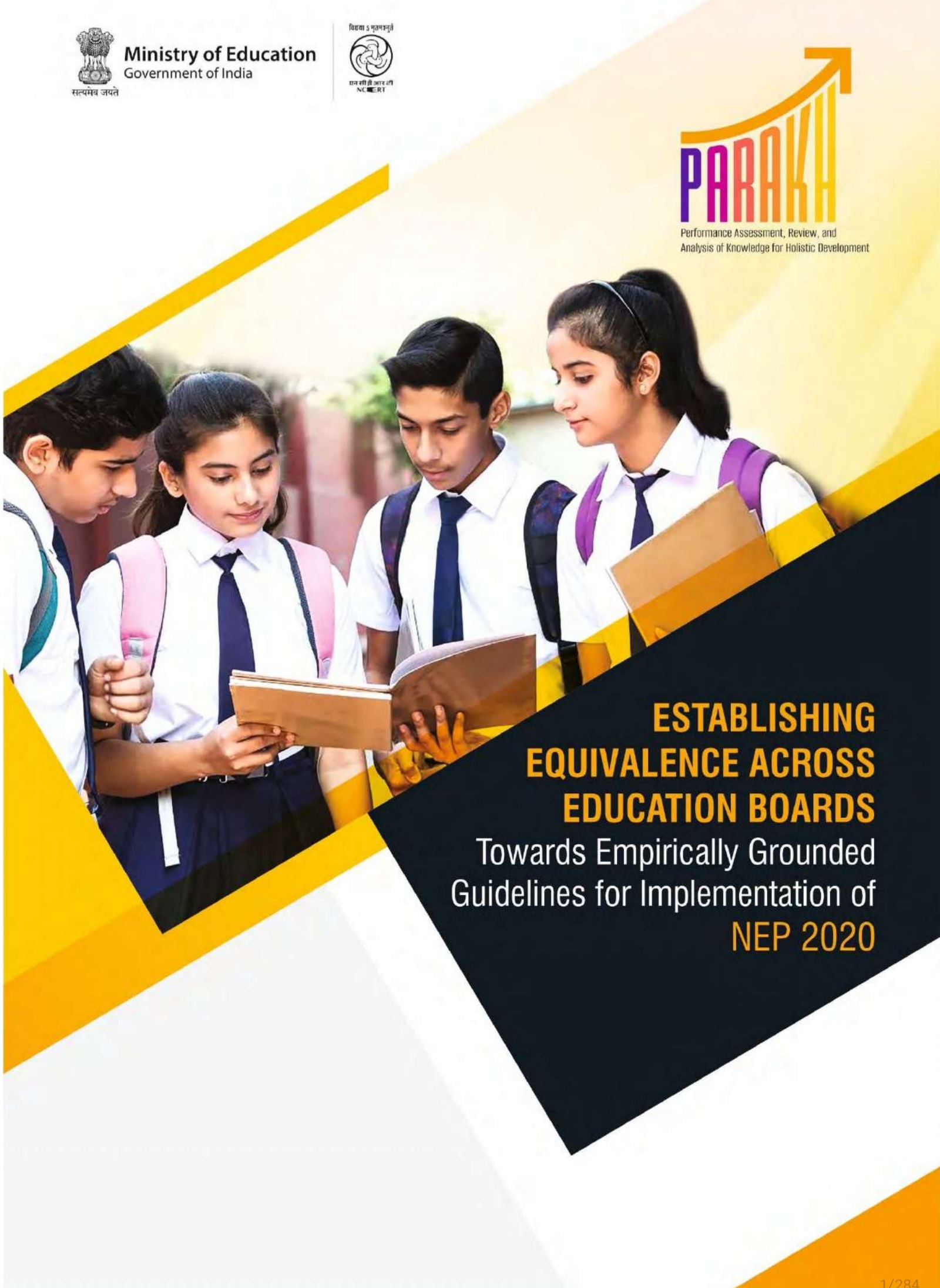
Equivalence of Boards (Towards Equivalence: PARAKH’s Bold Step to Harmonize India’s School Boards)
PARAKH NCERT
- By Indrani Bhaduri
PARAKH’s Equivalence of Boards initiative marks a transformative step toward harmonizing India’s diverse school education systems. With over 60 boards operating across the country, disparities in assessment and recognition have long hindered equitable learning outcomes. This initiative introduces empirical tools- Question Paper Templates (QPTs) and the Equivalence Questionnaire (EQQ) to evaluate and align board practices across key domains. Through collaborative workshops and diagnostic frameworks, PARAKH fosters a shared commitment to fairness without enforcing uniformity. The initiative upholds NEP 2020’s vision of competency-based, inclusive education, ensuring that every learner, regardless of board affiliation, receives transparent, developmentally appropriate, and nationally recognized assessment.
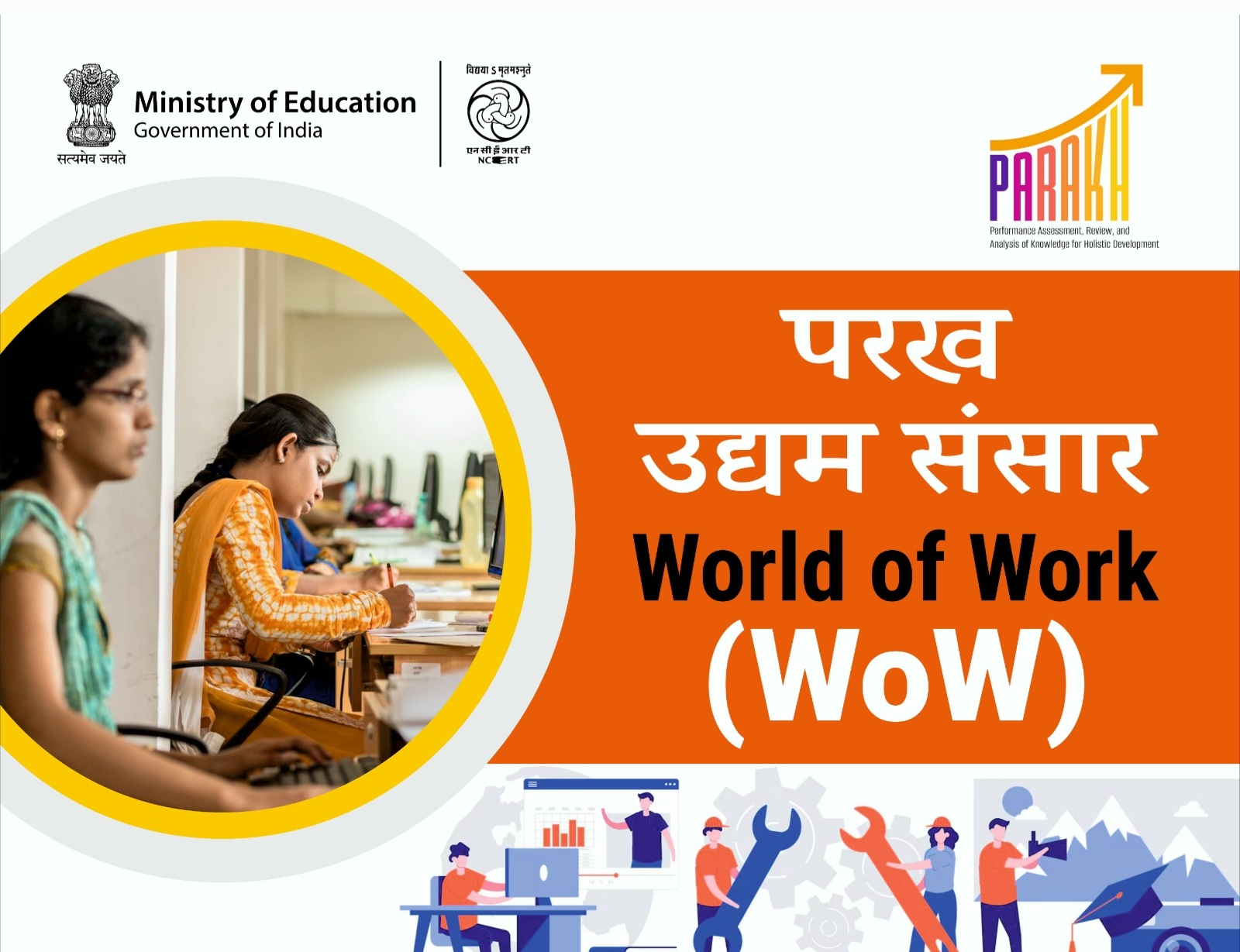
World of Work- उद्यम संसार
PARAKH NCERT
- By Indrani Bhaduri
World of Work (WoW): उद्यम संसार, launched by PARAKH, NCERT, is a national initiative that fosters career awareness and vocational exposure among school learners of Grade 9 and 10. Covering all 36 states and UTs, WoW introduces students to diverse sectors, the roles of 36 Sector Skill Councils, and foundational concepts of Artificial Intelligence. Rather than training, it emphasizes exploration through storytelling, reflection, and hands-on soft skill activities—collaboration, communication, critical thinking, and creativity. Aligned with NEP 2020 and NCF-SE 2023, WoW 2.0 deepens its reach in 2025, promoting inclusive, aspirational learning and empowering every child to envision a purposeful future.
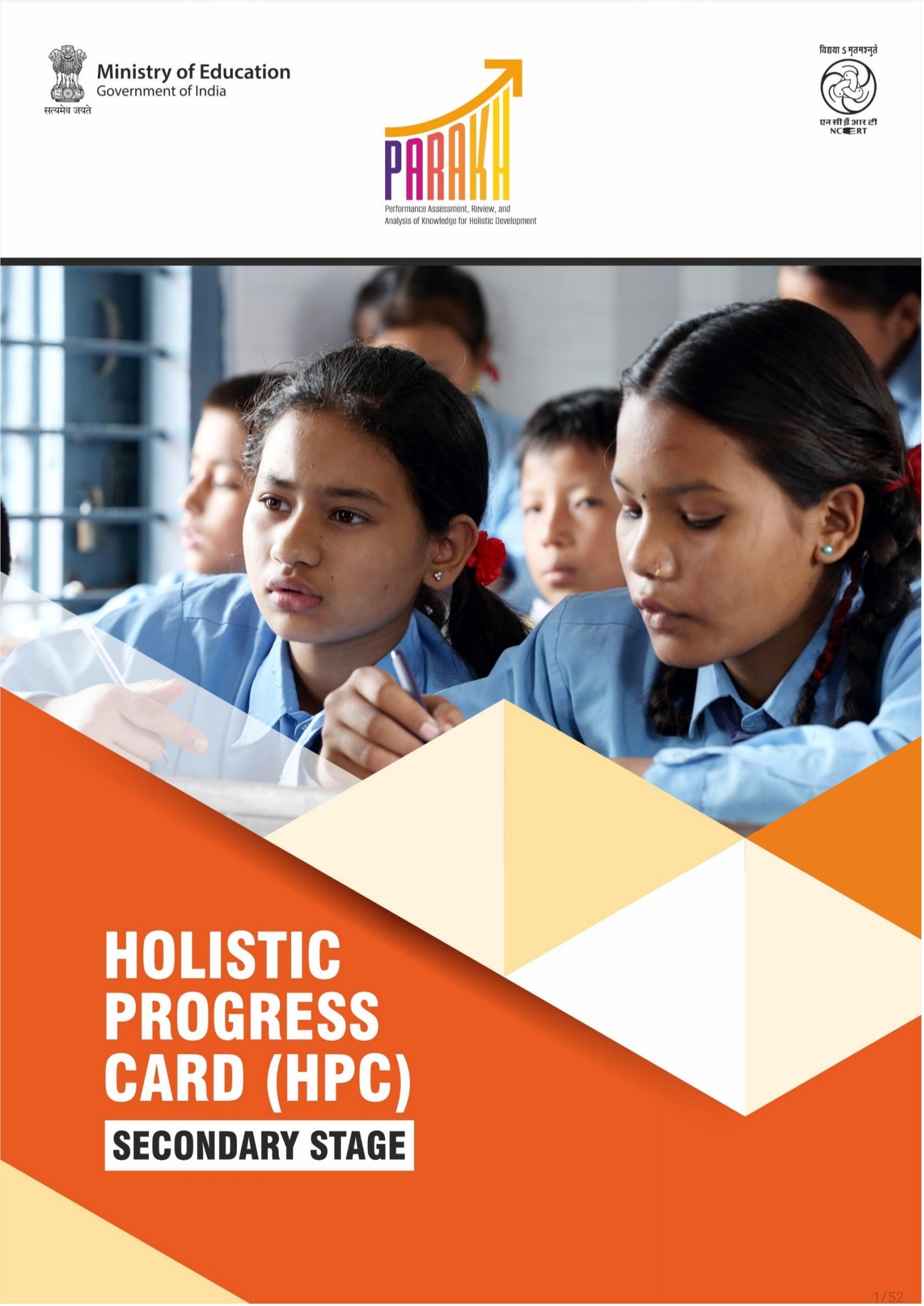
HPC at Secondary Stage
PARAKH NCERT
- By Indrani Bhaduri
The Holistic Progress Card (HPC) for the Secondary Stage (Grades IX–X), introduced by PARAKH, NCERT, reimagines assessment as a multidimensional narrative aligned with NEP 2020, NCF-SE 2023, and NCrF. It captures learners’ growth across academic, emotional, ethical, and vocational domains—moving beyond marks to reflect real-world readiness. The HPC values critical thinking, civic engagement, and skill-based learning. Vocational education is integral, documenting hands-on experiences and career awareness. Inclusive, reflective, and learner-owned, the HPC empowers adolescents to shape their futures with dignity, purpose, and personalized guidance.on
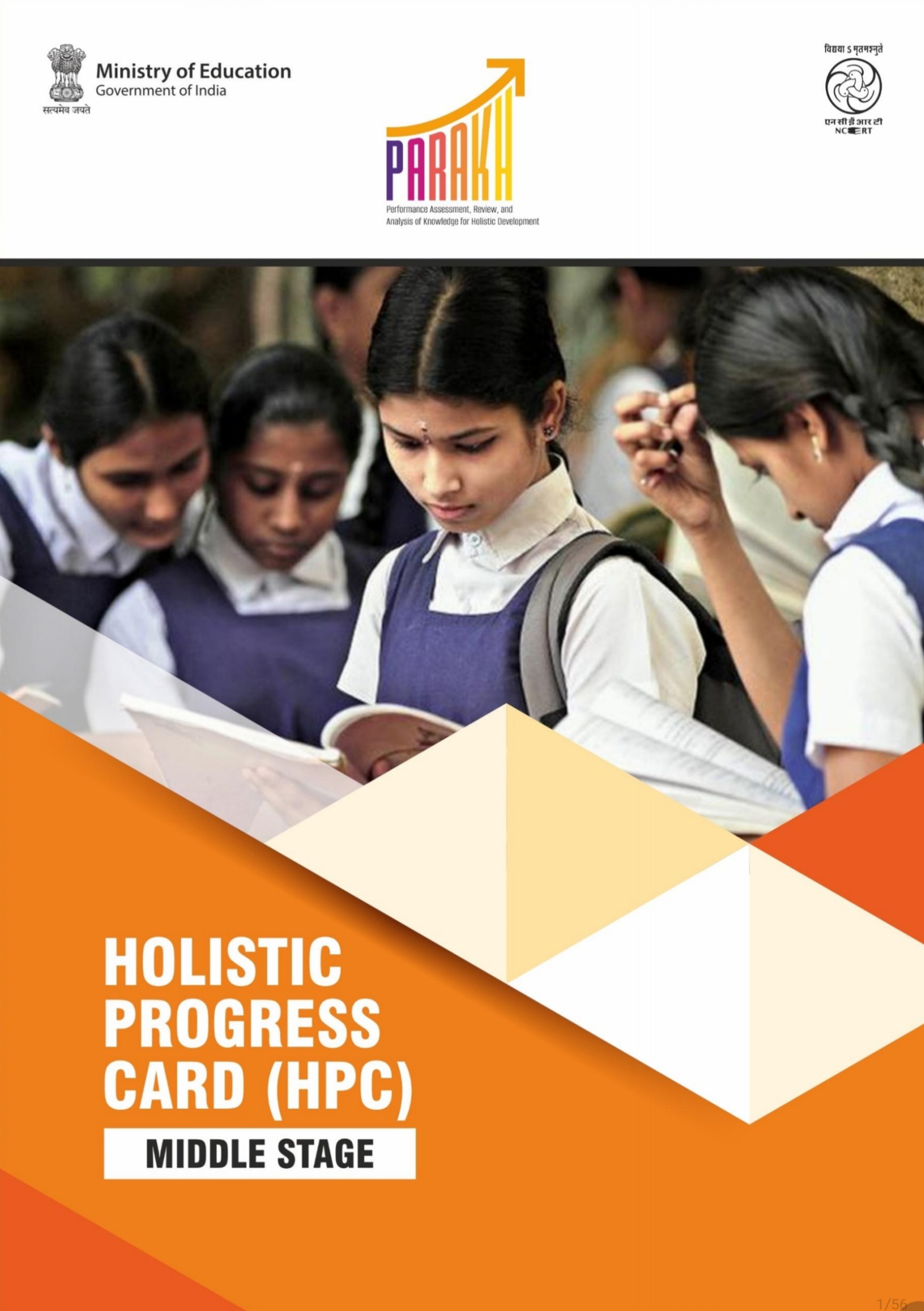
HPC at Middle Stage
PARAKH NCERT
- By Indrani Bhaduri
The Holistic Progress Card (HPC) by PARAKH, NCERT redefines assessment in the Middle Stage (Grades VI–VIII) by embracing a learner-centered, competency-based approach aligned with NEP 2020 and NCF-SE 2023. Moving beyond marks, the HPC captures growth across cognitive, emotional, creative, and pre-vocational domains through descriptive feedback and inclusive documentation. Integrated with the National Credit Framework, it allocates 70% of grade-level credit points to formative, observation-based assessment. The HPC empowers educators, supports diverse learners, and fosters reflective partnerships with families—making assessment a tool for transformation, not comparison. It celebrates each learner’s journey as a narrative of evolving identity, skills, and potential.
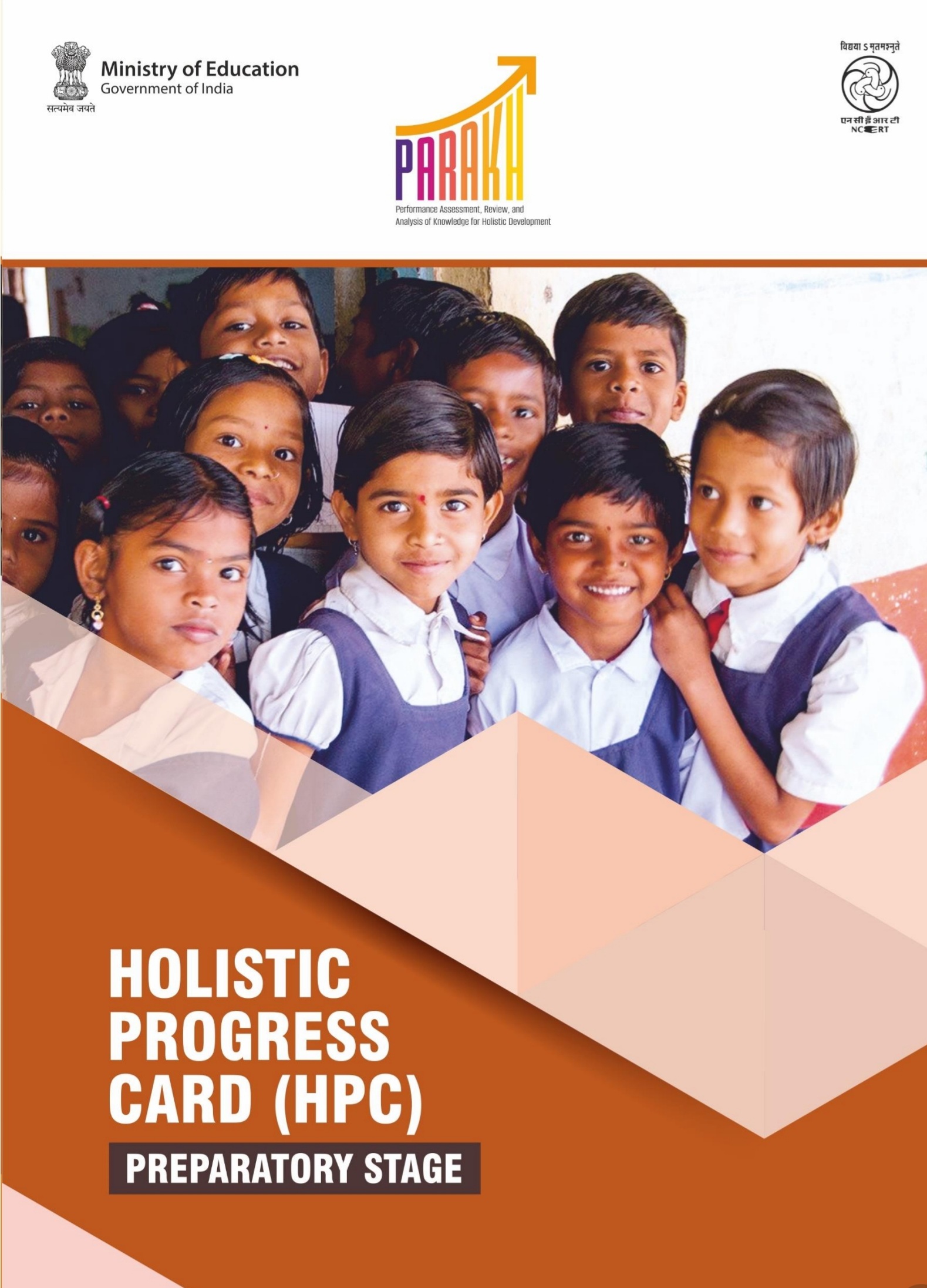
HPC Preparatory
PARAKH NCERT
- By Indrani Bhaduri
The Holistic Progress Card (HPC) at Preparatory Stage developed by PARAKH, NCERT redefines assessment for Grades III to V, aligning with NEP 2020 and the National Credit Framework. Moving beyond marks, the HPC offers descriptive, observation-based feedback across cognitive, social, emotional, and physical domains. It empowers learners, strengthens teacher-parent partnerships, and supports inclusive practices. With structured templates and credit point integration, the HPC ensures developmental assessment contributes meaningfully to a unified education system. This reform positions assessment as a tool for reflection and growth, marking a shift toward dignity-driven, learner-centric education across Indian classrooms.
 More
More

